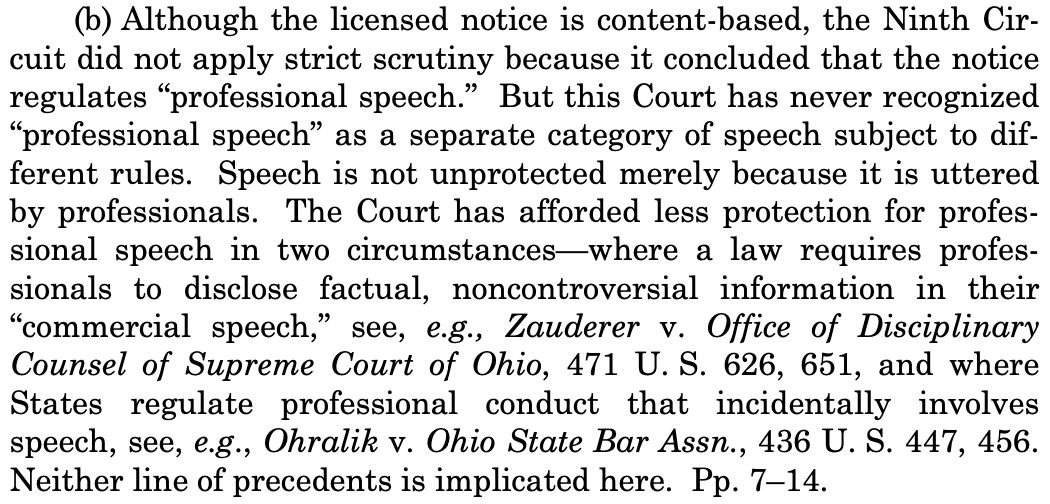"But Counseling Doesn't Fall Under Free Speech Because It's Professional Speech, and the Government has a Right to Regulate Interstate Commerce."

This is a common objection from many mental health practitioners, but it is based in a flawed understanding of our nation and its laws.
TLDR version is Murdock v. Pennsylvania 319 U.S. 105 (1943) says otherwise:
"A state may not impose a charge for the enjoyment of a right granted by the Federal Constitution. Thus, it may not exact a license tax for the privilege of carrying on interstate commerce,"
Boom. Headshot.
But here's the rest.
The thought process of many mental health professionals sounds like this:
- The government outlawed us from doing XYZ
- So I'll look for a legal rational that makes sense for why the government outlawed it
- because the government couldn't have broken the law when they made a law
- because we would have heard about it otherwise
First, the government doesn't have rights. "We the people" have rights. Men and women have rights. The government has interests and duties. The government exists to ensure the continuation of its people and civilization, and that the people's rights are secured.
The Constitution of the United States is a contract wherein the government, made up of members of "the people" is the grantor of that contract, and "we the people" are the beneficiaries of that contract. The Constitution exists to benefit us ("of the people, by the people, for the people", and all that).
Anyways, if you ever believed that private speech is protected, and professional speech isn't, you came by it honestly. A number of district and appellate courts have cited in their opinions an alleged concept called the "professional speech doctrine". Many times, those who invoke the "professional speech doctrine" betray the concept's weakness by then also alleging that certain speech isn't speech, it is conduct.
If the professional speech doctrine were in fact unprotected speech, then such a regulation would stand on its own merit. Instead, advocates for this nonsensical concept also redefine the speech of counselors and therapists as "conduct" as if to dodge an unfired bullet.
In Serafine v. Branaman, 810 F.3d 354 (5th Cir. 2016), the Texas State Board of Examiners of Psychologists invoked the "professional speech doctrine" to justify regulating basically every interaction of human life where one works to enrich the life of another and calling it the "unlicensed practice of psychology." Thankfully, the 5th Circuit Court of Appeals struck it down.
Two years, later, the U.S. Supreme Court heard and ruled on another case of free speech: National Institute of Family and Life Advocates v. Becerra, 585 U.S. 755 (2018), (Nifla v Becerra, or just "Nifla", for short). In it, the professional speech doctrine was addressed, echoing the opinion of the 5th Circuit Court of Appeals in Serafine:

That's pretty clear, is it not?
"But this Court has never recognized "professional speech" as a separate category of speech subject to different rules. Speech is not unprotected merely because it is uttered by professionals."
Justice Thomas gave two examples where there is less protection for professionals, one being that you have to use factual, noncontroversial information in advertisements; the other being that a professional must give an informed consent before doing something like brain surgery on a patient. You can't just go right in a perform brain surgery without telling your patient about it. They get kind of upset when surgeons do that.
Justice Thomas didn't slam the door shut on the professional speech doctrine, but he certainly struck down the 9th Circuit Court's nonsensical argument, and even identified that the 9th Circuit didn't seem to believe their own rationale.
So after all that, the short answer is no, the government doesn't have a right under "it's professional speech" to keep you from using CBT, EMDR, ImTT, talk therapy, or anything else. Free speech is free speech.

